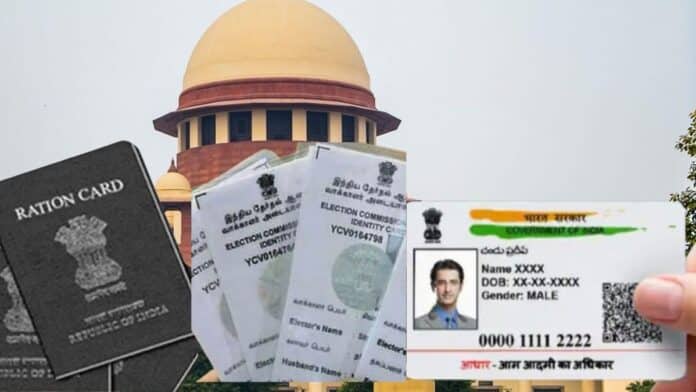The Election Commission (EC) has informed the Supreme Court that Aadhaar cards, voter ID cards, and ration cards cannot be treated as standalone valid documents for revising Bihar’s electoral rolls. This clarification came in a counter-affidavit filed by the EC on Monday, in response to a Supreme Court order dated July 10 that had asked
To Read More Please Subscribe to VIP Membership for Unlimited Access to All the Articles, Download Available Copies of Judgments/Order, Acess to Central/State Bare Acts, Advertisement Free Content, Access to More than 4000 Legal Drafts( Readymade Editable Formats of Suits, Petitions, Writs, Legal Notices, Divorce Petitions, 138 Notices, Bail Applications etc.) in Hindi and English.




